The indigenous peoples of Patagonia have long held a captivating yet often overlooked place in history. From the semi-nomadic Tehuelche to the skilled Mapuche horsemen and the seafaring Canoe tribes, each group has cultivated a unique cultural heritage shaped by their environments. Though faced with the challenges of colonization, these communities continue to preserve their identities, languages, and traditions, offering a glimpse into the rich diversity that has defined Patagonia for centuries.
- Key Points
- The Tehuelche People
- The Mapuche Civilization
- The Canoe Tribes of Patagonia
- The Impact of Colonization on Indigenous Groups
- The Relationship Between Indigenous Peoples and the Catholic Church
- The Importance of Preserving Indigenous Culture and Heritage
- The Role of Tourism in Celebrating Patagonia’s Indigenous Diversity
- The Sum Up
- More Tour Reviews in Bariloche
- Still browsing? Here are more Bariloche experiences we've covered recently
Key Points
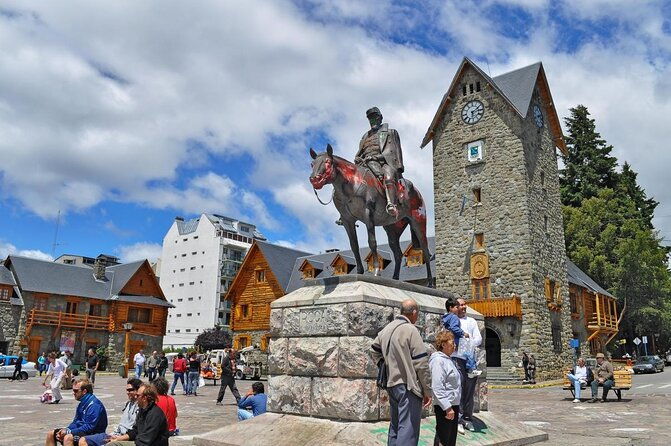
- The Tehuelche people were semi-nomadic inhabitants of southern Patagonia, impacted by colonization through displacement, disease, and cultural suppression.
- The Mapuche, renowned for their horsemanship and weaving, are an indigenous group native to south-central Chile and southwestern Argentina.
- The Canoe Tribes of Patagonia, including the Yaghan, Kawésqar, and Chono, developed sophisticated canoe-building and navigational skills, but faced disruption from European colonization.
- Colonization had a devastating impact on indigenous groups in Patagonia, including forced conversion, land seizures, resource exploitation, and disease outbreaks.
- Preserving the cultural heritage and traditions of Patagonia’s indigenous peoples is crucial for upholding their rights, maintaining biodiversity, and fostering intercultural understanding.
The Tehuelche People
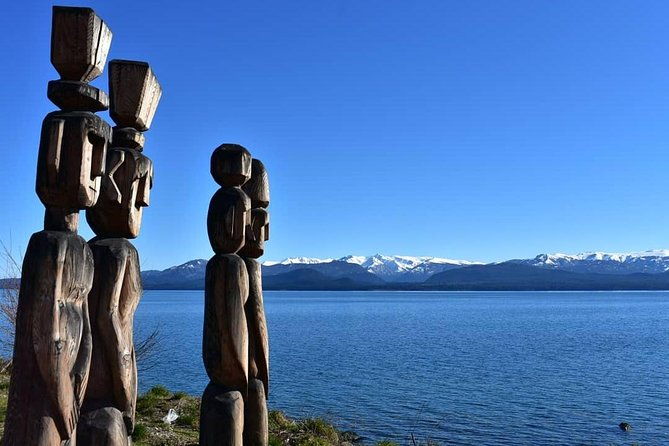
Although originally inhabiting the southern regions of Patagonia, the Tehuelche people were significantly impacted by the colonization of the area. They were a semi-nomadic group known for their hunting and gathering way of life.
The Tehuelche faced displacement, disease, and cultural suppression as European settlers arrived. Their traditional language and customs were threatened, and many were forced to convert to Catholicism.
Despite these challenges, the Tehuelche have worked to preserve their identity and continue passing down their rich cultural heritage to future generations, though their population has declined over the centuries.
Here are more experiences we've reviewed in Bariloche
The Mapuche Civilization
The Mapuche are an indigenous group native to south-central Chile and southwestern Argentina. They’ve a rich cultural heritage and have long resisted European colonization.
-
The Mapuche are renowned for their skilled horsemanship and weaving techniques.
-
Their traditional religion is based on a belief in the spiritual interconnectedness of all things.
-
The Mapuche language, Mapuche, is one of the most widely spoken indigenous languages in the region.
-
They’ve a strong tradition of community-based decision-making and political organization.
-
The Mapuche continue to fight for the recognition of their land rights and cultural sovereignty.
The Canoe Tribes of Patagonia
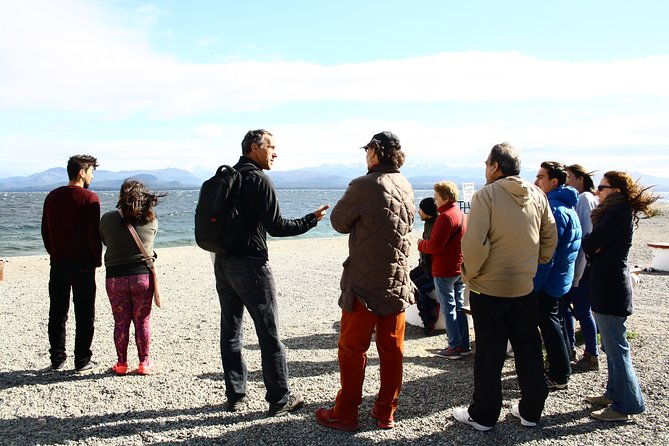
What’re the canoe tribes of Patagonia? The canoe tribes, or canoeros, are indigenous groups who inhabit the coastline and archipelagos of southern Patagonia. They rely heavily on watercraft for transportation and subsistence.
The Yaghan, Kawésqar, and Chono are among the most prominent canoe tribes. These groups developed sophisticated canoe-building techniques and navigational skills to thrive in the harsh, maritime environment.
The canoe tribes faced significant challenges from European colonization, which disrupted their traditional ways of life. Today, their descendants strive to preserve their cultural heritage and connection to the sea.
The Impact of Colonization on Indigenous Groups
As European colonists arrived in Patagonia, they disrupted the traditional ways of life for the region’s indigenous groups. The impact of colonization was devastating:
-
Forced conversion to Catholicism and suppression of indigenous spiritual practices
-
Land seizures and relocation that displaced communities from ancestral homelands
-
Destruction of traditional economies and livelihoods through resource exploitation
-
Exposure to foreign diseases that decimated indigenous populations
-
Attempts to erase indigenous cultures through assimilation policies and bans on native languages
The legacy of this colonial legacy continues to shape the struggles and resilience of Patagonia’s indigenous peoples today.
The Relationship Between Indigenous Peoples and the Catholic Church
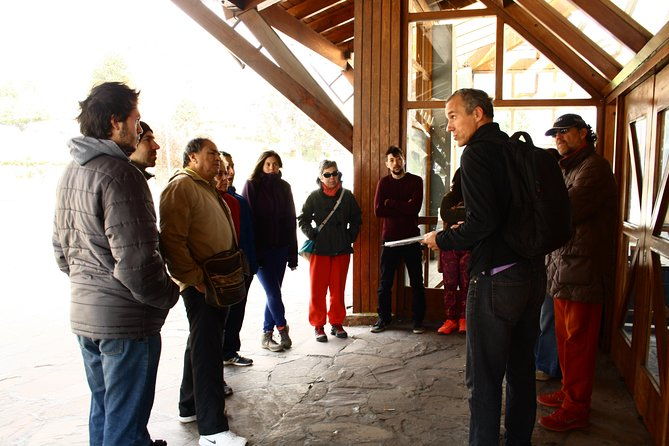
Although the arrival of Catholic missionaries in Patagonia brought widespread conversion efforts, the relationship between indigenous groups and the Church has been complex.
While some indigenous people embraced Catholicism, others resisted and maintained their traditional spiritual practices. Tensions arose as the Church sought to suppress indigenous cultural traditions, leading to conflicts and marginalization.
However, some indigenous leaders also leveraged their relationship with the Church to advocate for land rights and resist colonial oppression.
This dynamic illustrates the nuanced and evolving nature of the interaction between Patagonia’s indigenous populations and the Catholic institution.
- Fly Fishing Trips in Bariloche
- Trekking Day in the Mountains Close to Bariloche
- Half a Day of Kayaking on Lake Moreno in Private Service
- Bariloche Horseback Riding & Traditional Argentine Barbecue Tour
- San Martin De Los Andes via Seven Lakes Road From Bariloche
- Full Day Cerro Tronador: Eternal Snow and Hanging Glaciers
The Importance of Preserving Indigenous Culture and Heritage
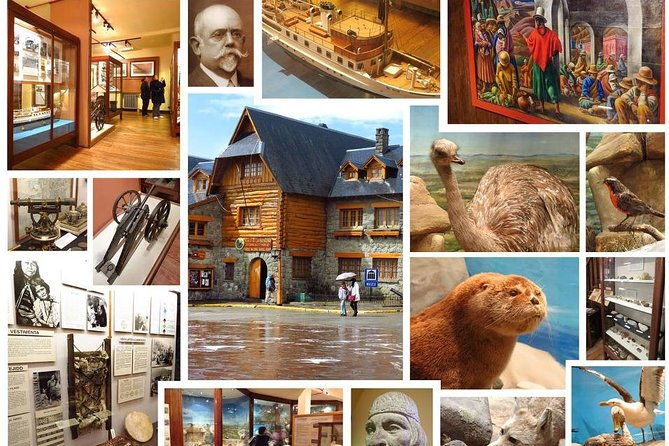
The preservation of indigenous culture and heritage in Patagonia is crucial. Indigenous groups like the Tehuelche, Mapuche, and canoe tribes have endured centuries of colonization, exploitation, and cultural assimilation.
Yet, their resilience shines through in their unique traditions, languages, and connection to the land. Preserving this heritage is vital for:
-
Upholding the rights and self-determination of indigenous peoples
-
Maintaining biodiversity and sustainable land management practices
-
Passing down traditional knowledge to future generations
-
Fostering intercultural understanding and respect
-
Promoting social justice and addressing historical inequities
The Role of Tourism in Celebrating Patagonia’s Indigenous Diversity
Tourism can play a vital role in celebrating the diverse indigenous cultures of Patagonia. Guided tours that focus on indigenous groups like the Tehuelche, Mapuche, and canoe tribes provide visitors with unique insights and first-hand experiences.
By engaging with local communities, travelers can gain a deeper understanding of Patagonia’s rich cultural heritage and the challenges faced by these groups. Thoughtfully curated tours that address the historical impact of colonization and the relationship with the Catholic Church further enhance awareness and appreciation.
This type of immersive tourism experience helps preserve and promote the vibrant indigenous diversity of the region.
The Sum Up
The indigenous peoples of Patagonia have endured significant challenges, but their rich cultural heritage and traditions continue to be preserved for future generations. Despite the impacts of colonization, the Tehuelche, Mapuche, and Canoe tribes strive to maintain their unique identities, languages, and ways of life. Ongoing efforts to celebrate this diversity through tourism and preservation initiatives are vital to ensuring the continued resilience of Patagonia’s indigenous communities.
More Tour Reviews in Bariloche
- Bariloche: Cerro Catedral Guided Tour
- Mountain Bike Adventure in Bariloche – Half Day Tour in Private Service
- Adventure to Cerro Tronador and Black Ventisquero From Bariloche
- Large Circuit in Bariloche – Long Circuit
- Transfer From the Airport to Bariloche
- Private Transfer From Downtown Bariloche to the Airport
Still browsing? Here are more Bariloche experiences we've covered recently
- Bariloche: Cerro Catedral Guided Tour
- Mountain Bike Adventure in Bariloche – Half Day Tour in Private Service
- Adventure to Cerro Tronador and Black Ventisquero From Bariloche
- Large Circuit in Bariloche – Long Circuit
- Transfer From the Airport to Bariloche
- Private Transfer From Downtown Bariloche to the Airport
- Excursion to Puerto Blest and Los Cantaros Waterfall
- Cerro Tronador
- From Bariloche: Discover the Magic of Cerro Catedral
- Andean Lakes Crossing Journey From Bariloche to Puerto Varas
- San Martin De Los Andes Through Seven Lakes in Private
- Private Transfer From Bariloche (BRC) Airport to Bahia López
